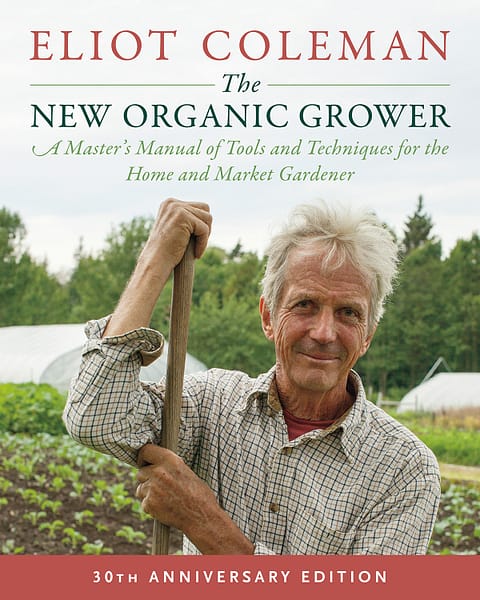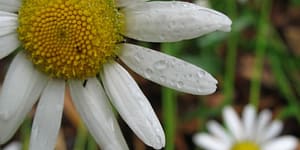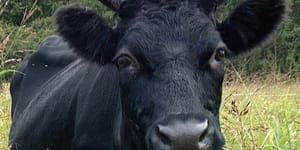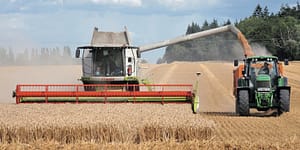The World Needs Books: Notes from an Editor

I’ve worked as an editor for 35 years—my entire adult life. In that time I have seen many changes in the publishing industry: faster computers, better software, and greater production from fewer and fewer actual workers. We could debate just how positive all this increased “efficiency” has been for publishing and for manufacturing as a whole. But mainly I hear the same question from friends and strangers alike: “Are books becoming obsolete?”
My answer has always been a categorical and reflexive, “No.” Even with the growing popularity of audio and digital publishing, many readers still gravitate toward the printed book—at least so far. Yet the question caused me to reflect on what Chelsea Green does as a publisher, and I wonder whether we are still serving as a positive force in the world. Whether, in short, we have a role beyond merely manufacturing new books and turning a profit.
Whatever the final consumer product—print or digital audio or ebook—books represent ideas. The best, longest-lasting, and most influential books are simply ideas filtered through the unique perspective and talent of their author, and structured in a written form that demands an internal logic, cohesion, and flow. (That’s where editors come in.) The very act of writing implies an organization of the creator’s thoughts, impressions, and opinions.

Amid this welter, books offer something very different. It takes a lot of time and effort to write a good book, and reading one requires time and commitment, too—something we often don’t think we can spare in our increasingly fast-paced lives. And yet, this kind of careful, quiet reading and contemplation is precisely what we so desperately need today. Reading a book makes us slow down and become a bit more human. We may not agree with a book’s argument or its author’s ideas, but even if we don’t, it engages us and makes us more empathetic and open to other ideas, other possibilities and perspectives that we may not have considered ourselves.
In fact I would argue that ideas are the original and highest form of “free trade.” At Chelsea Green we take a broad, indeed worldwide perspective, publishing authors from many countries and disseminating their ideas. Just as importantly, we are bringing some of the best American writers and thinkers to the world.
The ideas we publish build bridges, not walls. They build and expand communities instead of separating and segregating them.
Regenerate the Earth. Restore the Human Spirit. It’s a tall order, to be sure. But great books, the vehicles for great ideas, have the power to inspire us and cause us to do just that.
Ben Watson is a senior editor at Chelsea Green who has worked for the company since 1993. His editing projects have included bestselling titles such as The New Organic Grower, Wild Fermentation, and Gaia’s Garden. He is also the author of several nonfiction books, including Cider, Hard and Sweet. Ben is a recognized expert on apples and cider, and has served as a judge for several international competitions. He lives in the Monadnock Region of southwest New Hampshire, where he works to conserve and propagate heritage varieties of fruits and vegetables.
Recommended Reads
An Interview With Eliot Coleman: The Original Organic Pioneer
Recent Articles
Oxeye daisies are one of the most important plants for pollinators including beetles, ants, and moths that use oxeye daisies as a source of pollen and nectar. Instead of thinking about removing a plant like oxeye daisy, consider how you can improve the fertility and diversity of habitat resources in your home landscape, garden, or…
Read MoreIn her book, The Art of Science and Grazing, nationally known grazing consultant Sarah Flack identifies the key principles and practices necessary for farmers to design, and manage, successful grazing systems. This book is an essential guide for ruminant farmers who want to crate grazing systems that meet the needs of their livestock, pasture plants,…
Read MoreThis long-lived perennial legume is used for forage and erosion control. Kudzu is edible with many medicinal uses and other applications. Pollinators of all kinds love its prodigious lavender blooms!
Read MoreWhy is modern wheat making us sick? That’s the question posed by author Eli Rogosa in Restoring Heritage Grains. Wheat is the most widely grown crop on our planet, yet industrial breeders have transformed this ancient staff of life into a commodity of yield and profit—witness the increase in gluten intolerance and ‘wheat belly’. Modern…
Read MoreLearn how to grow shiitake mushrooms in almost any environment, including your yard and even your garage!
Read More







